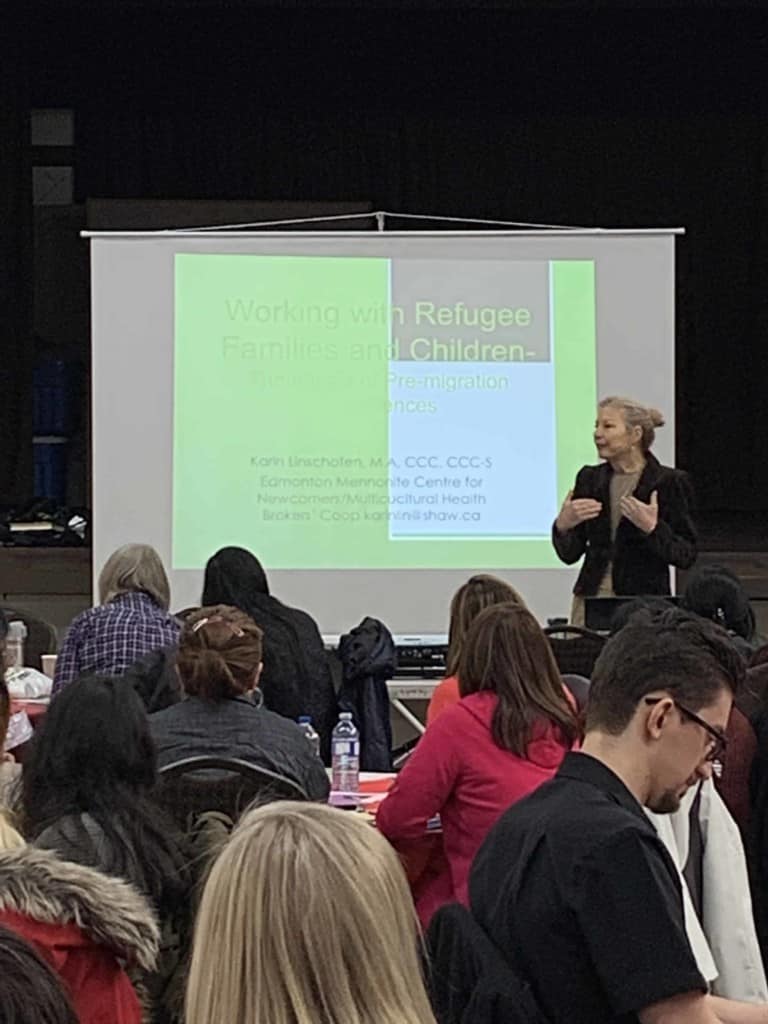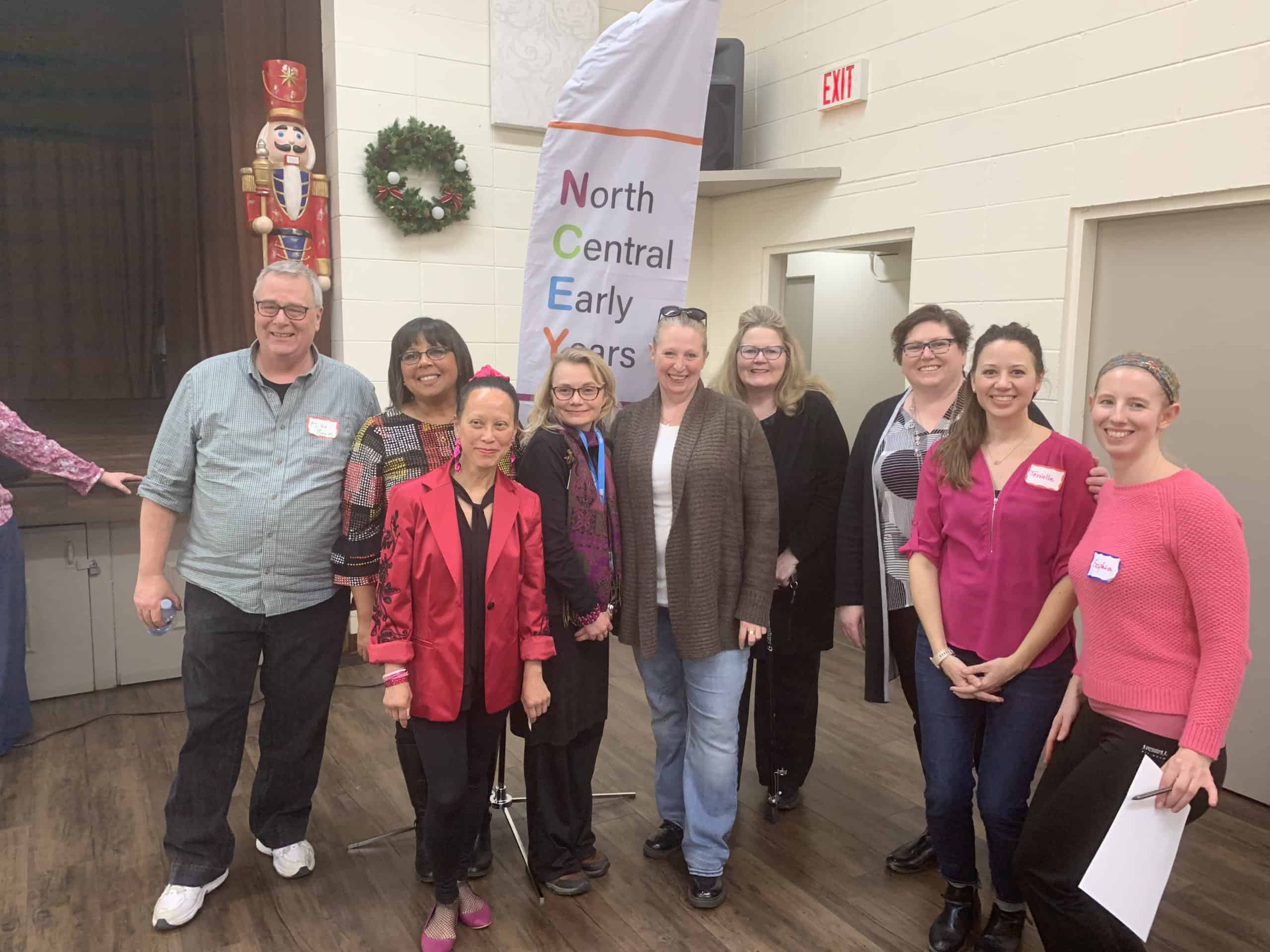Building resilience in children is important
Workshop helps parents and child care workers to teach children coping skills
On Nov. 30, the North Central Edmonton Early Years Coalition hosted a workshop called Building Resilience in Children: Giving Your Child Tools to Succeed. It featured Dr. Mike Boyers, developmental psychologist from the University of Calgary as keynote speaker, and Dr. Karin Linschoten, clinical director at the Edmonton Mennonite Centre for Newcomers.
Boyers’ presentation set a base for building resilience in general, while Linschoten’s expertise focused on the perspectives of refugee children.
Boyers uses a model elaborated by Alison Gopnik in her book, The Gardener and the Carpenter: What the New Science of Child Development Tells Us About the Relationship Between Parents and Children. This model builds on the premise that parenting outcomes have become less predictable. So-called Gardening recognizes the strengths of a child and adapts to their needs. In contrast, the Carpenter approach assumes predictable outcomes. Boyers points out that children today are faced with uncertainty.

He says, “For children of the 1990s, 65 per cent of the jobs available after high school graduation didn’t exist when they were in school.”
Children raised since the 1990s are having a difficult time preparing for radical, rapid change. Depression and self-harm rates have skyrocketed among children and youth. Resilience is a critical tool.
Linschoten focused on refugee experiences. She says, “It is important to keep in mind that there are so many strengths that are not visible on first look.”
Refugees struggle with the impact of pre-migration experiences. They have suddenly, and often brutally, lost everything. Refugee camps develop their own culture of trauma and violence. Refugees adapt to struggle and recurrent loss. Scarcity creates a situation where personal safety is constantly breached.
Structure and routine in a refugee camp make people vulnerable to attack. When refugees come to Canada, where structure and routine are important, they fear routine.
In a Canadian context, adaptive refugee behaviour can be misinterpreted. Linschoten points out that refugees can be slow to trust. They seem detached—even from their children—by Canadian standards.
Linschoten advises, “The things people bring have a reason. We need to bridge with understanding rather than judgment. It is important for refugees to have the support to navigate changes.”
Linschoten’s work merges well with Boyers’ ideas. Resilience is an important skill to learn. As Boyers explains, this is not magic. It requires guidance and support.
The workshop took place shortly after the UCP government announced that the Early Childhood Development Coalitions will lose funding as of April 1, 2020. New legislation won’t differentiate between kids 1-5 and kids older than that. The City Centre Coalition serves the RCP readership. Contact the coalition for information.
MORE INFO
City Centre Coalition
Kathy Burgett, chair
780.910.3832
KathyB@norwoodcentre.com
earlychildhoodedm.ca/citycentre/
Honorable Rebecca Schulz (UCP)
Minister of Children’s Services
780.644.5255
Featured Image: From left to right: Dr. Mike Boyers, Debi Pagee, Linda Mak, Christine Mennear, Tracy Patience, Cheryl Heiland-Chaulk, Deb Flewelling, Tenielle Bennett, Sophia Burak. | Tekla Luchenski







